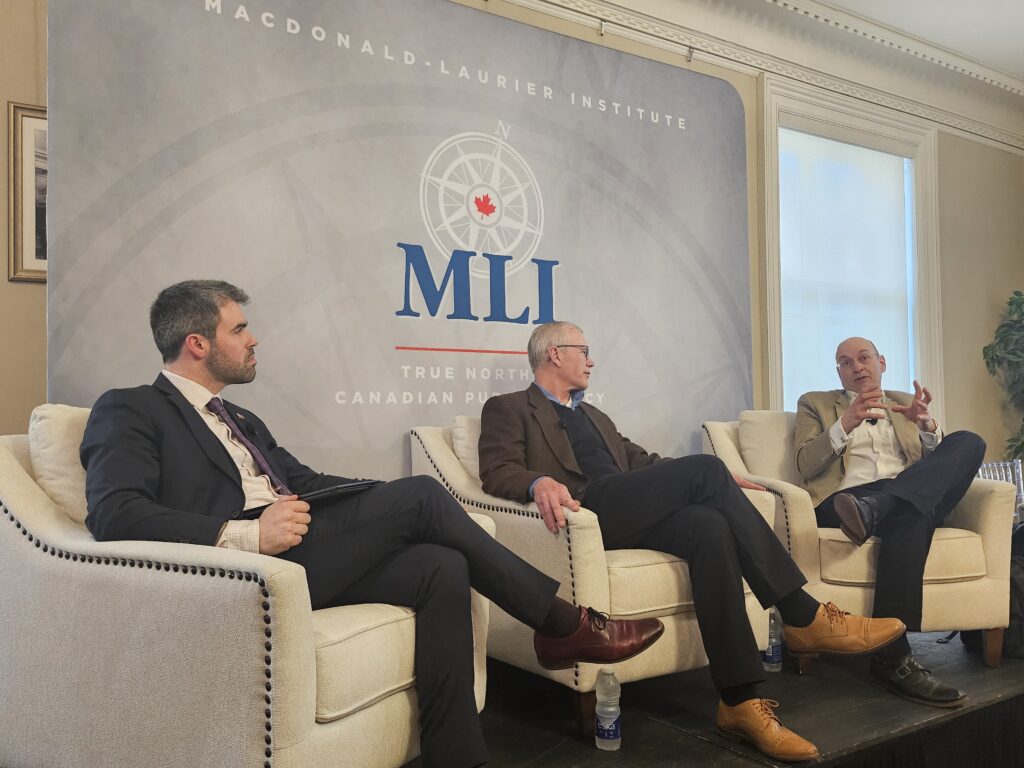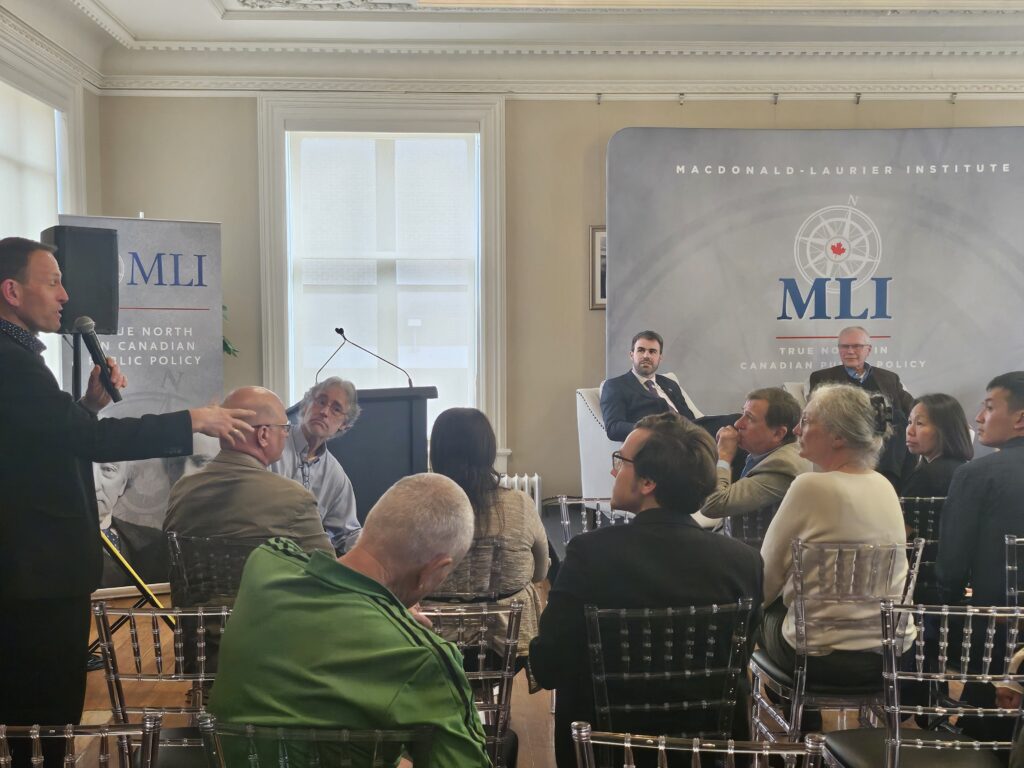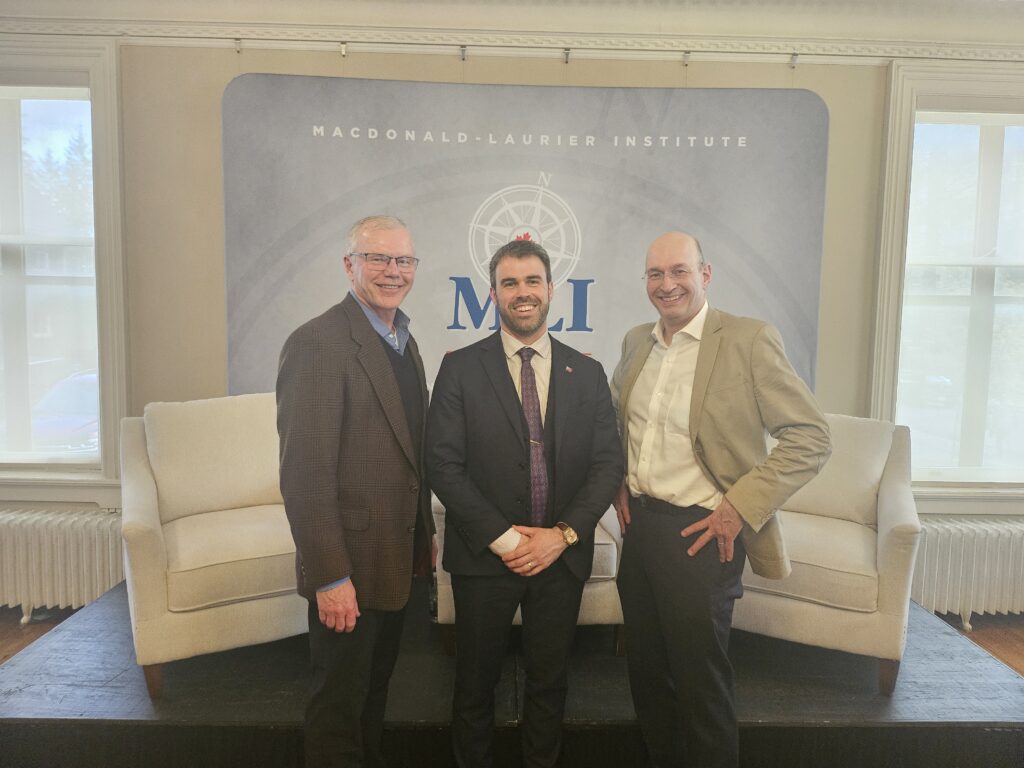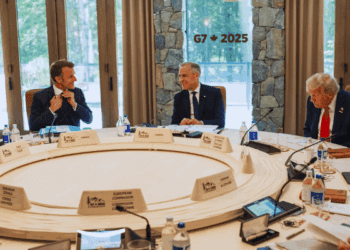On May 6, 2025, the Macdonald-Laurier Institute hosted a thought-provoking discussion on the leadership and legacy of Prime Ministers Sir John A. Macdonald and John Diefenbaker, featuring historians and authors Patrice Dutil and Robert Plamondon. The event was moderated by MLI Deputy Director of Domestic Policy Peter Copeland.

Drawing from their respective works, Dutil and Plamondon explored how these leaders helped shape Canada’s national character and democratic institutions.
Dutil emphasized the importance of civic inheritance, urging Canadians to recognize the visionary accomplishments of leaders like Macdonald, who laid the foundation for Confederation. Plamondon, who has written extensively on Prime Ministers Trudeau, Chrétien, and now Diefenbaker, argued that Canada is an “unlikely” country — one that has endured despite deep regional, linguistic, and external pressures. Both men asserted that Diefenbaker, like Macdonald, was ultimately driven by a powerful sense of duty to Canada.

A key theme explored during the discussion was the role that history plays in shaping national identity. While acknowledging the darker chapters of Canada’s past, the speakers warned against allowing historical grievances to obscure moments of unity, achievement, and resilience. In today’s polarized climate, Dutil and Plamondon advocate for a renewed commitment to historical understanding — not as a tool of condemnation, but as a source of guidance, reconciliation, and national purpose.






